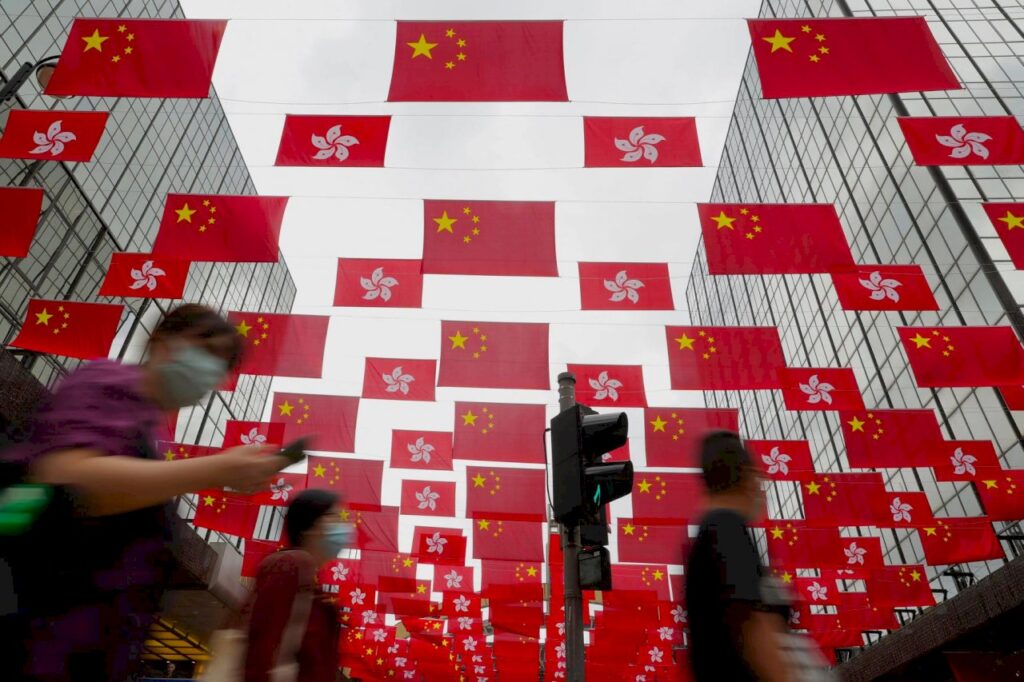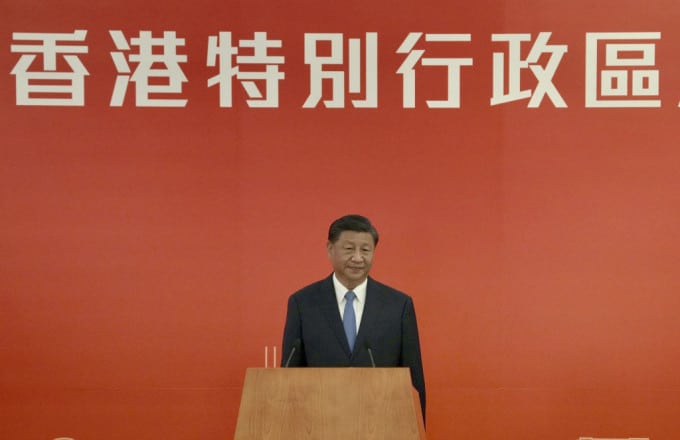Early last month, the United States held a democracy summit, using Taiwan and Hong Kong people to use democracy as a guise to intensify ideological confrontation between China and the West. The State Council Information Office has published two white papers, "Democracy in China" and "Democracy Development in Hong Kong under "One Country, Two Systems"", explaining the concept of "whole-process people's democracy", and reiterated the silence of the "Sino-British Joint Declaration" on universal suffrage, seeking to win over the world The right to speak of "democracy". From the perspective of the international context, the election of the Hong Kong Legislative Council has been settled, and the new term has been sworn in. It is also a piece of the jigsaw puzzle for Sino-US relations. When democracy develops into a diplomatic arena, the practice of the new electoral system in Hong Kong will inevitably add strategic significance to competition between great powers.
Hong Kong-style democracy aims at development
The white paper clearly states at the beginning that the democratic system under one country, two systems is to promote the development of capitalist economy. Therefore, Hong Kong’s electoral design is not entirely based on population quotas, but emphasizes balanced participation in the Election Committee and the Legislative Council to protect some classes and sectors that are not large in number but are important to the socio-economic structure. This principle has always been consistent. Since the transition period, China has cultivated industrial and commercial professional elites as the core of Hong Kong governance. On the premise of maintaining prosperity and stability, capitalism has been implemented by capitalists. In other words, any chaos that harms capitalism and hinders economic development is contrary to its original intention, let alone a fully populist parliament and members who clamor for speculation and sanctions.
Hong Kong-style democracy not only attaches importance to the process of generating political representatives. The white paper links "good democracy" with people's well-being, with the ultimate goal of whether people can enjoy the fruits of development. In the past, those who governed Hong Kong often blamed the dissatisfaction and disputes among the people on the opposition's obstruction of governance. For example, delays in large-scale infrastructure projects such as the Northeast New Territories Development, the high-speed rail, and the Hong Kong-Zhuhai-Macao Bridge were considered to have affected the livelihoods of countless workers and caused Hong Kong to miss out. The opportunity to solve development bottlenecks has in turn led to rising public dissatisfaction. Now that the patriotic camp is firmly in power, without the constraints of the opposition, I believe many people expect them to achieve good results and show that the new electoral system is a "good democracy."
Explore democratic channels beyond elections
According to the design, the Election Committee will vote to select the Chief Executive, some seats in the Legislative Council and Hong Kong District People's Congress deputies. The patriotic camp will achieve administrative leadership in different positions. However, even if the radical forces and the non-cooperation movement in the Legislative Council disappear, it does not mean that the relationship between the executive and the legislative will be smooth sailing. Because the new political situation represents new political relationships, the chamber is still filled with conflicts between factional competition, socio-economic backgrounds and self-interests. The establishment political parties took the lead in overturning the executive authority to raise the age of recipients of Comprehensive Social Security Assistance for the elderly. Last month's election process also repeatedly confirmed that there was no father and son in the election. Furthermore, even if all members are patriots, they may have different attitudes toward the chief executive, which may not make it easier to reach consensus.
Since then, the pro-establishment camp has monopolized parliament, which raises concerns that opposition voices may disappear in the short term, but deep-seated social contradictions will accumulate deep within society. Just as the white paper advocates expanding various democratic channels such as consultation, consultation, hearings, and dialogue, elections are only one part of the democratic system. In the future, the government needs to be more proactive in reaching out to the public and absorbing non-mainstream voices outside the parliament so that governance can be brought closer to the grassroots and a democratic system with Hong Kong characteristics can become a development path and governance model that is in line with Hong Kong conditions.
Ray Poon
Co-Convenor (Research), Path of Democracy



